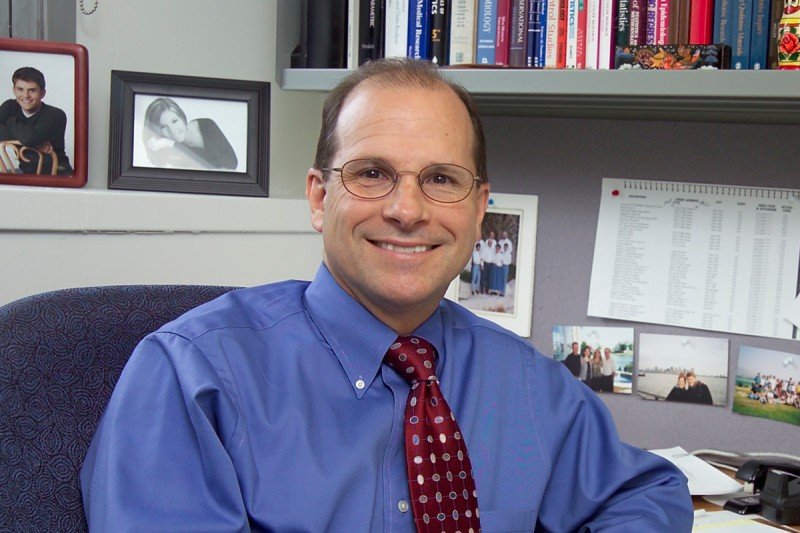
Almost three-fourths of pediatric cancer survivors will have a chronic health problem within 30 years after the cancer diagnosis, with 40 percent experiencing a serious, life-threatening, disabling, or fatal condition, according to investigators from Memorial Sloan Kettering Cancer Center (MSKCC), St. Jude Children’s Research Hospital, and other institutions. Investigators recently reported the largest study to date of chronic health conditions in more than 10,000 adult survivors of pediatric cancer who were diagnosed in the 1970s and 1980s. The study’s findings, which appear in the October 12 issue of The New England Journal of Medicine, are significant as there are approximately 270,000 survivors of childhood cancer in the United States - about 1 of every 640 adults between 20 and 39 years of age. The findings are based on results from the Childhood Cancer Survivor Study (CCSS), a 26-institution study that is tracking the health outcomes of over 14,000 survivors who were diagnosed with cancer between 1970 and 1986. CCSS, coordinated through St. Jude Children’s Research Hospital, has been funded by the National Cancer Institute since 1994.
“It is encouraging that at least a quarter of long-term survivors may not experience a chronic health problem,” said Kevin C. Oeffinger, MD, the Director of MSKCC’s Program for Adult Survivors of Pediatric Cancer and lead author of the study. “However, our findings - that most survivors treated in this era will develop health issues, often many years after their therapy -underscore the need for adult survivors of childhood cancer to be followed on a regular basis by a healthcare provider who is familiar with their health risks. It is important for survivors to realize that many of these chronic health problems can be diagnosed early and more easily treated, or sometimes even prevented.”
Prior to the early 1970s, most children with cancer did not survive. With significant advances in radiation and chemotherapy, the 1970s and 1980s was a time when many children were successfully treated for their cancer and became long-term survivors. Much has been learned since this first wave of cancer survivors were treated and cured.
“Newer therapies are based on improved understanding of the potential treatment complications of those earlier therapies,” said Leslie L. Robison, PhD, Chair of the Department of Epidemiology and Cancer Control at St. Jude, principal investigator of CCSS, and senior author of the study. “The findings of this study will serve as a benchmark against which we will be able to compare future outcomes of patients who are now receiving more advanced and less toxic therapies. We expect that patients treated in the last 10 - 15 years will experience fewer and less severe long-term health problems.”
The CCSS findings were based on interviews with survivors, questionnaires filled out by those survivors, and analysis of their cancer treatments. The outcomes of the adult survivors (mean age of 26.6 years; range, 18 to 48 years) were compared to their siblings (mean age 29.2 years; range, 18 to 56 years). Compared to their siblings, adult survivors of childhood cancer were eight times as likely to have severe, life-threatening, or disabling chronic health conditions such as heart attacks, second cancers, and serious problems with cognition (e.g., learning and memory), according to the report.
The study found that the three groups at highest risk for long-term problems related to childhood cancer and its treatment are survivors of bone tumors, tumors of the central nervous system (brain and spinal cord), and Hodgkin’s disease. Survivors in these groups were also more likely to have multiple conditions. For example, bone tumor survivors with multiple chronic conditions were more likely to have severe problems with bones and muscles, hearing loss, and congestive heart failure; survivors of brain tumors were more likely to have seizures, hormone diseases, and problems with cognition; and Hodgkin’s disease survivors were more likely to have second cancers and heart disease.
Women were also at particular risk. Female survivors were 50 percent more likely to report a severe, life-threatening, or disabling condition than male survivors. Females were also more likely to have multiple conditions. “Clinicians of all specialties who treat female pediatric cancer survivors need to be aware of their patients’ increased risk of serious disease, including breast cancer and cardiovascular disease, at a younger age than the general population,” commented Dr. Oeffinger.
“The Children’s Oncology Group has developed a set of evidence-based recommendations to facilitate follow-up care for long-term childhood cancer survivors,” states Dr. Melissa M. Hudson, Director of the After Completion of Therapy (ACT) Program at St. Jude Children’s Research Hospital and one of the authors of this study. “These recommendations and health information for survivors can be found at: www.survivorshipguidelines.org.”
“Continued research in this area is critical,” emphasized Dr. Charles A. Sklar, Director of MSKCC’s Long-Term Follow-Up Program and one of the authors of the study. “The only way that we can continue to learn how to decrease the frequency and severity of chronic health conditions following therapy for cancer is through research such as this study through the Childhood Cancer Survivor Study.”
The study’s co-authors also included Ann C. Mertens, PhD (University of Minnesota, Minneapolis), Toana Kawashima, MS (Fred Hutchison Cancer Research Center, Seattle), Anna T. Meadows, MD (Children’s Hospital of Philadelphia, Philadelphia), Debra L. Friedman, MD (Fred Hutchison Cancer Research Center, Seattle), Neyssa Marina, MD, Wendy Hobbie, C.P.N.P. (Children’s Hospital of Philadelphia, Philadelphia), Nina S. Kadan-Lottick, MD (Yale University School of Medicine), Cindy L. Schwartz, MD (Brown Medical School, Providence), and Wendy Leisenring, Sc.D. (Fred Hutchison Cancer Research Center, Seattle). Funding was provided, in part, by grants from the US Department of Health and Human Services and the American Lebanese Syrian Associated Charities (ALSAC).